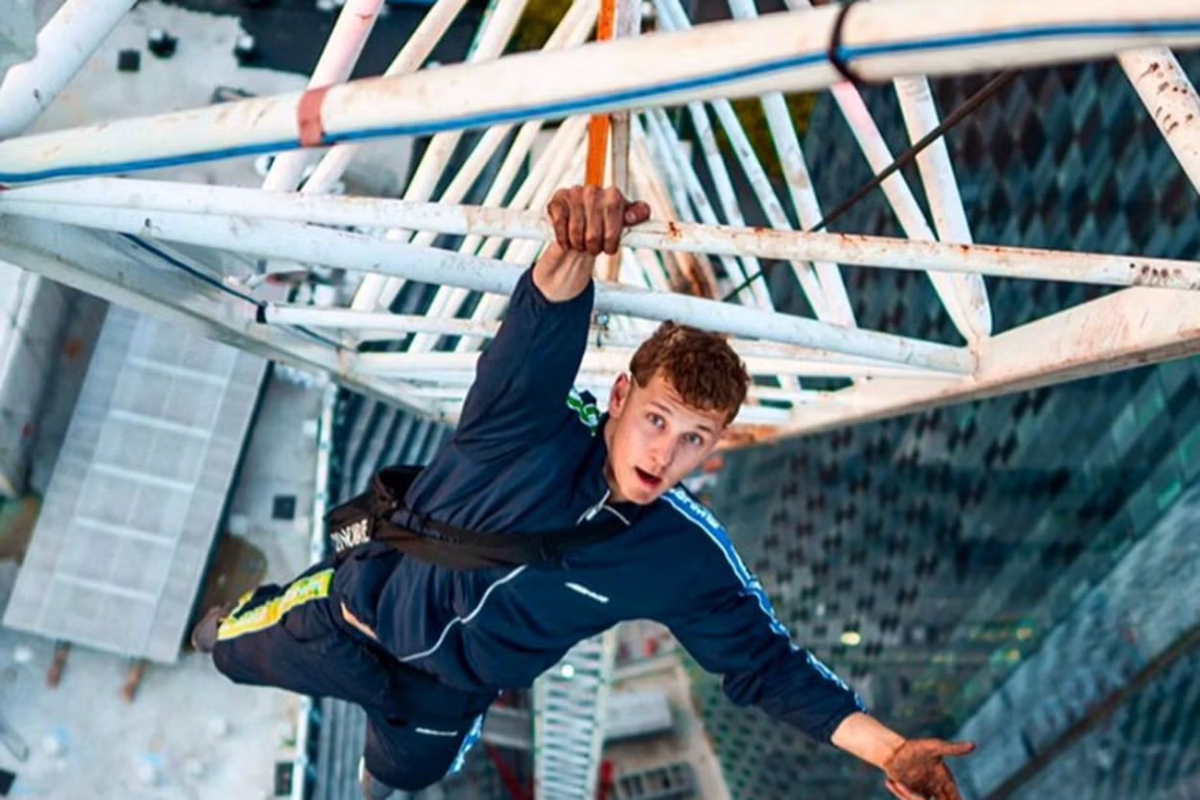George King is generally a very happy young man. “I want to live to old age,” he tells The Independent. “I love my life.”
But every time he enjoys his favourite hobby, he knows there is a very real chance it could kill him.
The 26-year-old hit the headlines in 2019 after scaling London’s Shard – western Europe’s tallest building – in an audacious free climb that stopped traffic, transfixed bystanders and sparked a media frenzy. Despite eventually being jailed over the stunt, it represented the realisation of a dream several years in the making.
“I was around 10 years old when I first climbed a climbing wall without rope,” recalls King. “I remember getting halfway and freezing. But after composing myself and focusing on my breathing, I reached the top and felt something I’d never felt before – an overwhelming sense of euphoria, bliss, almost like a supernatural feeling.”
That moment would become the launchpad for his obsession with urban free climbing – a discipline that leaves little room for error.
By the age of 13, King had already set his sights on the Shard. “I remember seeing it from a school bus on a trip to London. It stood apart from all the other buildings … like it had been taken from the future and put into the present.
“Impulsively, I wrote it down on my list of dreams. Dream 202: climb the Shard.”
After finishing school, King dedicated himself entirely to that goal. He trained for months, sacrificing his social life and family time. “It was my entire existence,” he says.
He even devised elaborate methods to measure the building’s surfaces without arousing suspicion. “I couldn’t just get a measuring tape and start measuring, otherwise it’d be suspicious. So I’d run to the Shard in sports gear. I’d stretch on a pillar, measure from my wrist to my elbow, then run home and get a tape measure to work out the dimensions.”
When the day finally came, in July 2019, King climbed without drones, cameras or sponsors. “It was purely about fulfilling a dream, not about fame or money,” he says.
The climb took just 20 minutes. He moved constantly for the first 100 metres to avoid losing momentum, using the corners of window panes for stability. At one point, he locked eyes with a cleaner through the glass. “The cleaner smiled at me. I smiled back. We waved. It was this bizarre synergy – a moment neither of us would ever experience again.”
At the top, police were waiting. They greeted him with a handshake and released him after 30 minutes – a sign, King thought, of tacit admiration. But the legal reality proved very different. He was later sentenced to six months in Pentonville, one of London’s toughest prisons.
“It certainly lived up to its reputation,” King says. “I saw stabbings on a near-daily basis, serious bouts of self-harm, even a suicide. It was a really horrific place.”
Despite the risks, King says the rituals of his climbs – including accepting his own mortality the night before – give him purpose. “It gives me a sense of liberation, of freedom. The meaning of what I’m doing, and the feelings it gives me, are worth the risk. My mind is a bit different from other people’s. I need to do these things, otherwise I’d go down toxic paths – alcohol, drugs, whatever. These pursuits keep me straight.”
Yet King insists he does not have a death wish. “I want to live. I want to be around for the people in my life. But to have that control, I need to accept the possibility of death.”
His message, he stresses, is not about imitation but about passion. “If you just turn up and attempt what I do without proper preparation or training, you’ll likely die,” he says. “But once you find your passion, whatever it is, block out the entire universe and become totally tunnel-visioned.”

